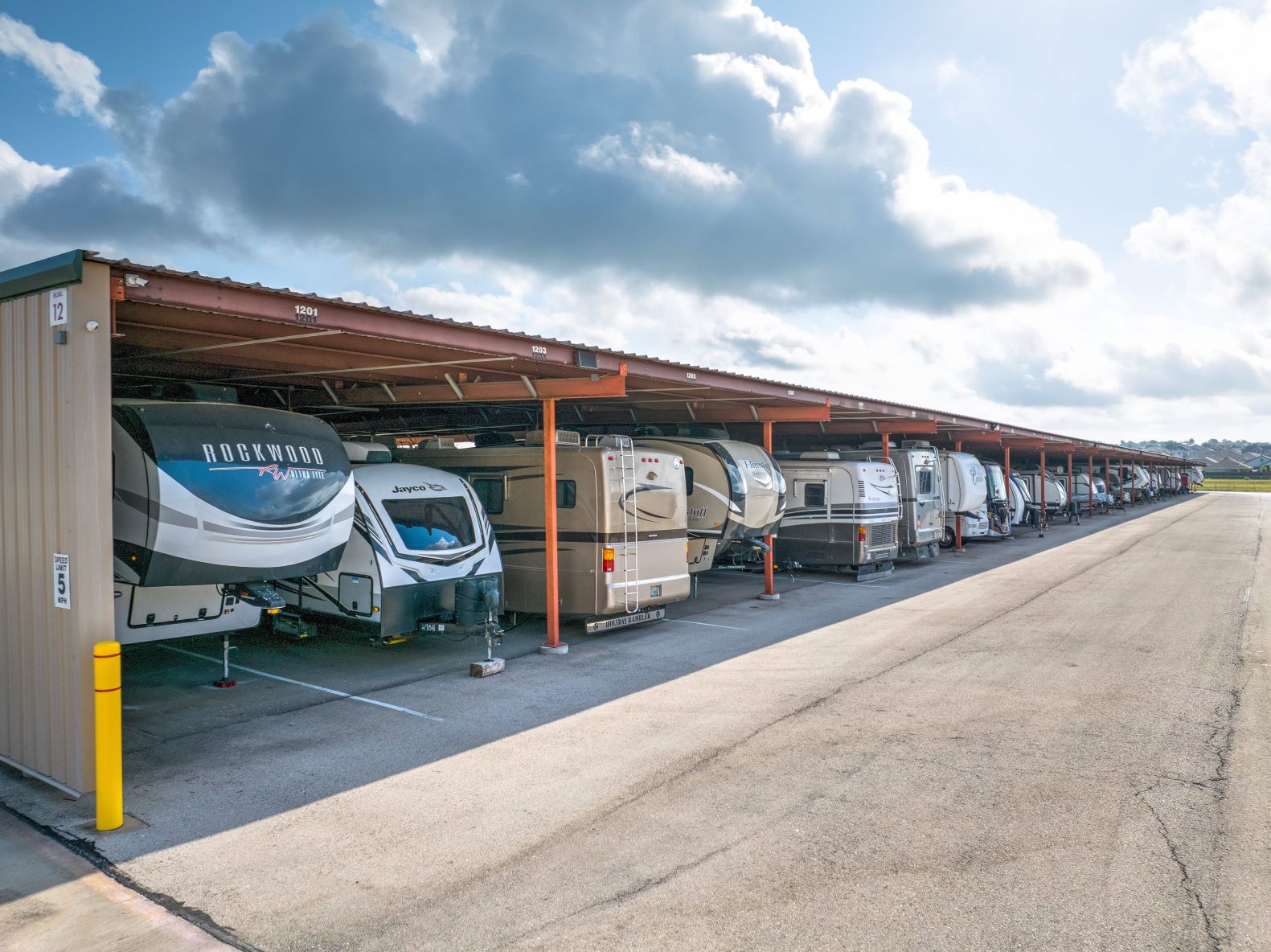RV, Boat and Vehicle Storage

Given that the benefits of owning an RV are experienced mainly in the summer months, it makes sense to find a dependable place to store that vehicle once camping season comes to a close. Like RVs, boats require some tender loving care before they're tucked away for the offseason. Here are some ways to make sure you're well-prepared and confident that your investment is safe and secure until it's time to take it out again.
Storage Options As with standard self-storage, vehicle storage comes in several sizes and formats, allowing for a mostly customizable approach to meeting your storage needs. To that end, here are the three primary ways to store a vehicle in self-storage:
Indoor vehicle storage in a climate-controlled unit
This is the best method for long-term storage and for fragile or valuable vehicles.Indoor vehicle storage in a non-climate-controlled unit
This works great for most vehicles that can handle a range of temperatures and humidity levels.Outdoor vehicle storage
If a vehicle can be exposed to the elements for an extended period, this is the least expensive option.
• Uncovered Outdoor Parking – These uncovered spaces have one big advantage—they present no issues with overhead clearance. If you own a 14-foot RV or a tall marine vessel, such as a sailboat, these spaces are a perfect option.
• Indoor RV Storage – Indoor storage is an option, too, and for many good reasons. For one, it's a perfect way to eliminate the possibility of a vehicle-related exterior problem. Indoor storage also solves the issue of whether a vehicle might fit in the space.
• Outdoor Parking That Is Covered – This is the most typical choice for individuals who want to place their boats, RVs, or other vehicles into temporary storage. These units generally provide around 14 feet of height but can go up to 25 in some cases. If you have something that is too tall to fit into a space that is 14 feet high, then covered parking probably isn't going to be of much help to you. It could, however, be an okay alternative for parking something like an RV because it would be much more likely to maintain the integrity of the paint, body, and interior than a space that was totally outdoors.
• Indoor Parking in an Enclosed Space—As you might guess, this is the most secure option for storing your car. At most facilities, these spaces look very similar to normal storage spaces, but these units are much bigger. Parking here is just like parking in an oversized garage. Making the Most of Your Vehicle Storage Experience
We highly encourage you to go the extra mile to guarantee that your vehicle storage experience is safe, clean, and secure. Here are some tips that could help you achieve just that:
• Vehicle Must Be Cleaned – Your vehicle will be exposed to all sorts of natural conditions that, when combined, are bound to soil and tarnish your stored vehicle. At a minimum, give your vehicle a thorough washing and wax job before putting it under wraps.
• Install a Lock – Your vehicle will be safe in our gated, well-lit, and monitored facilities, but adding a lock will not only give you peace of mind but will also make the vehicle all the more secure.
• Prevent Pests and Mold – If you have actual amenities in your vehicle, you'll want to leave certain things open in the vehicle—like fridges, freezers, and vents—that could otherwise encourage mold to grow when the vehicle is sealed up.
• Shield Your Automobile – To add another layer of safeguard to your vehicle, throwing a tarp over the automobile will aid in staving off sun damage from occurring.
• Conduct Regular Tire Upkeep – To ensure the upkeep and quality of your vehicle's tires while in storage, we suggest either inflating the tires to the maximum cold settings and then allowing the tires to come to a natural temperature, or moving the vehicle every 2 to 3 months to keep the components functioning as intended.
• Stop Fluid From Freezing – To prevent freezing fluids from damaging boat parts, be sure to empty all fluid systems and replace the fluids with antifreeze.
We hope you have found worth in this article and that you feel more comfortable now about storing your vessel in a self-storage facility. Considering the large investment you probably made in your RV, boat, or vehicle, it's only right that you would want to give your vessel a clean, secure place to call home when it's not in use. Most of our SpareBox Storage facilities have the perfect storage space to accommodate any size vehicle, and we encourage you to check our locations for availability near you.